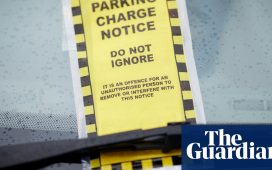A woman shops for chicken at a supermarket in Santa Monica, California, on Sept. 13, 2022.
Apu Gomes | AFP | Getty Images
For those who fear a recession may be coming, the only question is when.
Many economists and CEOs, in fact, expect a recession may be on the horizon this year.
A recession is traditionally defined as two consecutive quarters of declining economic growth. That is measured by a drop in gross domestic product, or GDP, a measure of the country’s output in the value of goods and services.
The U.S. economy finished 2022 with positive GDP, new government data shows. From October to December, GDP climbed at a 2.9% annualized pace.
But economic risks still loom. As the Federal Reserve raises interest rates to curb inflation, it may also be putting the brakes on growth.
More from Personal Finance:
It’s still a good time to get a job, career experts say
If you want higher pay, your chances may be better now
Workers still quitting at high rates
Experts aren’t the only ones worried about a downturn.
Almost half of U.S. adults — 46% — think the nation is already in a recession, a recent Morning Consult survey found. Meanwhile, 25% expect such a downturn within the next year.
“We’re not officially in a recession,” said Amanda Snyder, finance reporter at Morning Consult.
“But if people feel that their money is not going as far as it was or their income is shrinking, then they personally are experiencing a financial downturn,” she added.
The survey found 31% of more than 2,200 respondents have started taking steps to prepare for a recession.

Meanwhile, half of U.S. adults — 50% — have not started preparing for a downturn, though they wish they could, the mid-January survey found.
The remaining 19% said they have not prepared because they do not want or need to.
Those who most likely have taken steps to safeguard their finances were those with incomes over $100,000, at 41%; followed by those earning $50,000 to $100,000, at 39%. Those earning less than $50,000 were least likely to have started to prepare, at 24%.
Experts say there are several ways to strive to get your finances in order now.
1. Reduce your spending
Admittedly, record high prices at the grocery store can make it difficult to pare your food bills.
But it is possible to look for ways to cut back to make room for other financial goals.
Certified financial planner Ted Jenkin, CEO and founder of oXYGen Financial and a member of CNBC’s Financial Advisor Council, recommends a 21-day budget cleanse find ways to cut back on spending.
Over 21 days, shop every single bill in your household to see if you can get a better deal.
2. Boost your emergency savings
Marsbars | E+ | Getty Images
Even having just a little more cash set aside can help ensure an unforeseen event like a car repair or unexpected bill does not sink your budget.
Yet surveys show many Americans would be hard pressed to cover a $400 expense in cash.
Experts say the key is to automate your savings so you do not even see the money in your paycheck.
“Even if we do get through this period relatively unscathed, that’s all the more reason to be saving,” said Mark Hamrick, senior economic analyst at Bankrate.com.
“I have yet to meet anybody who saved too much money,” he added.
3. Reduce your debt balances
While higher interest rates are pushing up what you pay on debts, you can control that by paying down your balances, Matt Schulz, chief credit analyst at LendingTree, previously told CNBC.com.
“For inflation to grow this quickly is something that is really rattling to people,” Schulz said.
But certain moves may help you to control your personal interest rate, he said.
If you have outstanding credit card balances you’re carrying from month to month, try to lower the costs you’re paying on that debt, either through a 0% balance transfer offer or a personal loan.
Alternatively, you may try simply asking your current credit card company for a lower interest rate.











